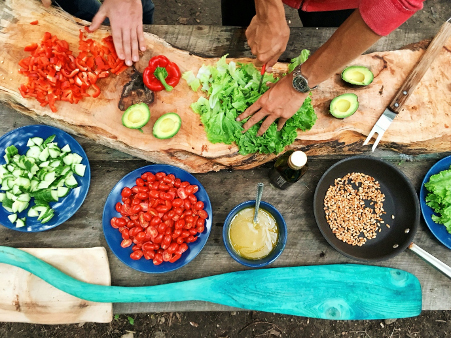How to Master the Art of Simple and Delicious Cooking

When you feel tied to a recipe, cooking can be stressful, but it doesn't have to be that way. Intuitive cooking is a joyful and exciting approach that can transform your culinary experience. Uncover the tips and secrets to intuitive cooking with our guide below, and let the joy of cooking take over.
Understanding Basic Kitchen Equipment
When you are cooking, the right tools can make all the difference. Combining your creativity with precision to create tasty delicacies is easier when you have the right equipment. Cooking isn't just an art; it's a science. You can play around with ingredients and cooking techniques and come up with a culinary masterpiece. If you are a complete novice in the kitchen, start with having essential kitchen tools and equipment. A well-equipped kitchen makes your cooking experience enjoyable and less stressful. Ensure you have good quality knives, cutting boards, pots and pans, casserole dishes and a few small appliances like a food processor.
Basic Cooking Techniques
Every cook starts somewhere, and it's usually with the basics. Get a simple recipe and familiarise yourself with the cooking terms used. Create a glossary for yourself and practise the techniques of simple cooking. For example, learn how to sauté vegetables or meats. Other essential techniques include braising, roasting, grilling, baking, boiling and simmering. The key to mastering cooking techniques is practice. For instance, when cooking brown rice, you boil and simmer it for best results. With consistent practice, you'll soon be an expert at combining cooking techniques for delicious dishes.
Understanding Ingredients and Flavours
Every simple dish can be enhanced with spices and seasoning. When cooking, understanding your ingredients and adding flavours to your dish is crucial. For instance, proteins usually form the foundation of many meals, while vegetables add flavour and colour. If you want to enhance flavours in your cooking, master the art of using fresh or dried herbs and spices. Fats like oil and butter add richness to dishes, while acids like citrus juices, wine and vinegar balance rich fatty foods and brighten the flavours. You can create delicious, balanced dishes when you understand how each ingredient interacts with seasoning.
Learn Meal Planning and Preparation
If you want to cook daily, plan your meals to save time and reduce stress. Meal planning can be as simple as stocking your pantry with key ingredients or creating weekly meal plans to streamline your cooking process. When planning your meals for the week, create a grocery shopping list to ensure you have all the ingredients. You can also prepare ingredients in advance. For instance, wash and chop vegetables or cook grains ahead of time. You can also cook in batches by preparing stews, soups, and casseroles in advance.
Master Techniques for Simple and Delicious Cooking
Once you've learnt the basics, you can experiment to enhance flavour. For instance, you must learn how to balance flavour profiles like sweet, sour, bitter, salty and umami. Use these flavours to improve simple dishes. Familiarise yourself with common substitutions. When you don't have sour cream, try Greek yoghurt and get the same results. If a recipe uses an ingredient you don't like, you can substitute it with your preferred ingredients. If you don't like mushrooms, you can use another quick-cooking veggie like zucchini. Learning substitution helps you break free from the recipe trap and discover new flavours.
Cooking doesn't have to be stressful, and you don't need to go to a culinary school to perfect your dishes. The trick is to cook with confidence and experiment with flavours. Don't forget to adjust recipes by testing and playing around with ingredients and cooking techniques.
MORE





